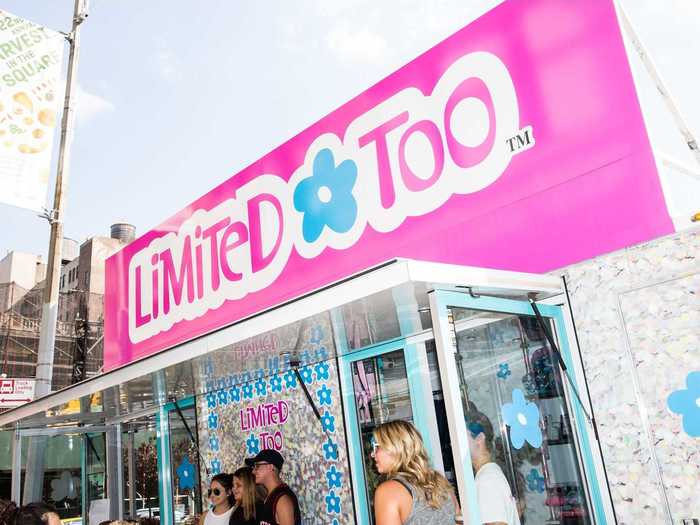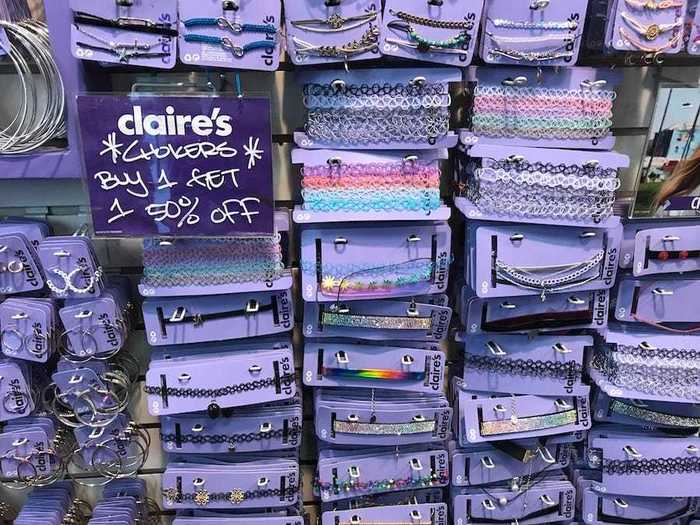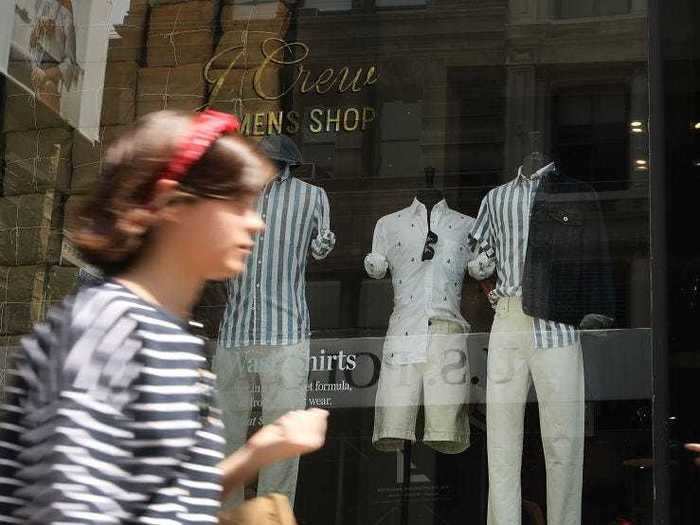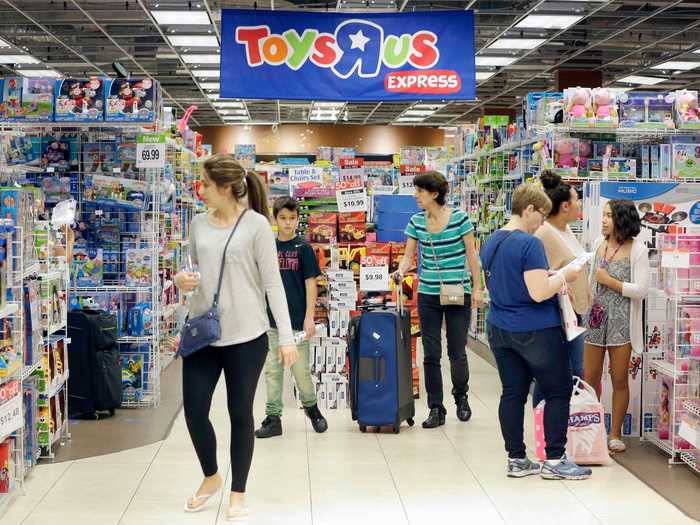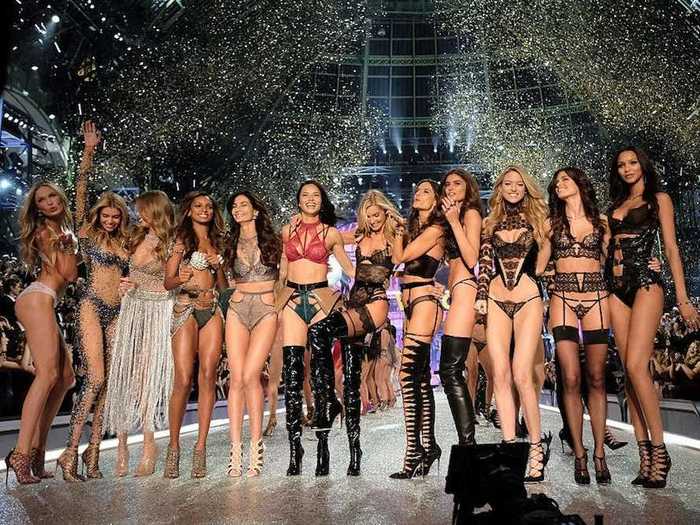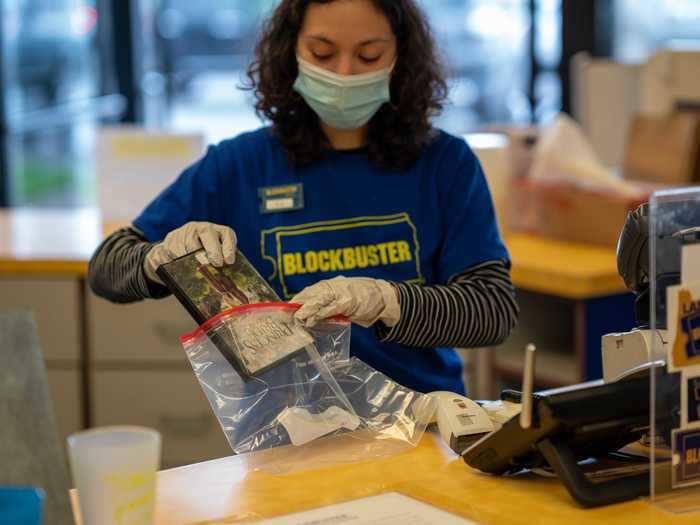Chuck E. Cheese
Chuck E. Cheese at the Annual Hollywood Christmas Parade in 2003.
Mark Sullivan/WireImage
Limited Too
A nostalgia-fueled Limited Too pop-up store in New York City in 2017.
Sarah Jacobs/Business Insider
Chuck E. Cheese is far from the only once-beloved millennial brand to take a hit during an economic downturn. Limited Too, the tween girl clothing store of choice in the 90s, shuttered back in 2008 amid the recession.
The kids-oriented offshoot of The Limited sold colorful, rhinestone-crusted tank tops and gaucho pants and played an integral part in many young fashionistas lives. It opened in 1987 and at one point had 600 stores nationwide.
The brand was ultimately folded into Justice — a clothing store that sells similar threads but a lower price point.
Claire's
Claire's offers jewelry aimed at teens along with a well-known in-store ear-piercing service.
Business Insider/Mary Hanbury
Iconic jewelry chain Claire's filed for bankruptcy in March 2018.
At the time, the company said plunging customer traffic in shopping malls led to its decline. Consumer preferences on the whole, according to Claire's, have shifted toward online shopping. Even still, the one-time teen haven's unique offering — its ear-piercing service — cannot be replicated virtually.
When Business Insider's Mary Hanbury visited a Claire's location the day before the retailer filed for bankruptcy she found it to be "like stepping back into the '90s." To her, "it seemed that the store was struggling to compete for the modern teen shopper."
J. Crew
A woman walks past a J. Crew storefront.
Getty/Spencer Platt
J. Crew — one of America's most iconic preppy brands — filed for Chapter 11 bankruptcy on May 4. It was the first major retailer to do so amid the coronavirus pandemic.
The retailer's heyday was in the mid-2000s, but it launched in 1983. The company secured more than $1 billion in funding from lenders to continue day-to-day operations and reopen stores.
Toys R Us
Shoppers shop in a Toys R Us store on Black Friday in Miami in November 2016.
AP/Alan Diaz
Victoria's Secret
Victoria's Secret Angels in 2017.
Dimitrios Kambouris/Getty Images
Victoria's Secret, the country's largest lingerie retailer — and since the late 1990s, it has been one of the best-known and most talked about brands in the country, too.
Amid the coronavirus pandemic, the store is permanently closing as many as 250 stores in the US and Canada. The news came after management confirmed that a deal to sell a majority stake in the company to private-equity firm Sycamore Partners had fallen through.
A number of changes turned the tide for the brand however, from slipping sales to shifting public perception and issues within the C-Suite.
Blockbuster
An employee putting a sanitized DVD in a ziplock bag amid the coronavirus pandemic at the last remaining Blockbuster in Bend, Oregon.
Ryan Harding
Founded in 1985, Blockbuster was the top movie-rental business in the country in the 1990s and early 2000s. Many fondly remember Blockbuster as a family staple and a signifier of an exciting Friday night.
In 2010, the company filed for bankruptcy because it was incapable of competing with no-fee rental companies. By 2014, most of the company's stores had closed.
While there were once over 9,000 stores in the US, today, just one remains. The last Blockbuster standing is located in Bend, Oregon. Its management thinks it will even make it through the coronavirus pandemic unscathed.

